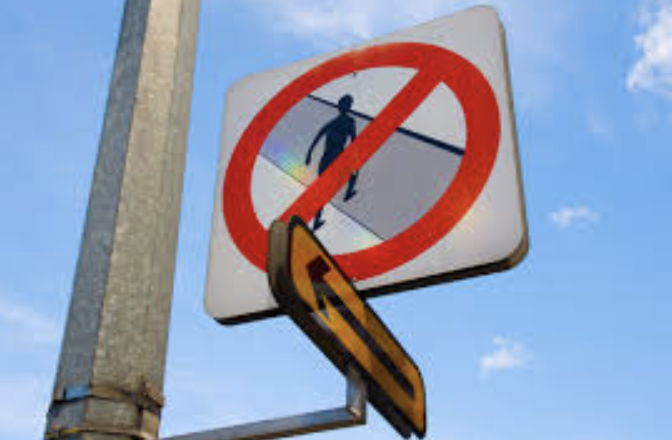The Freedom to Walk Act
May 24, 2023
With effect from January 1, 2023, jaywalking will be decriminalized in California, freeing pedestrians to cross the street away from a marked intersection “as long as it’s safe to do so.” “The Freedom To Walk Act,” which was sponsored by assembly member Phil Ting, was signed by Governor Gavin Newsom in early October this past year. Pedestrians will be cited for jaywalking “only when a reasonably careful person would realize there is an immediate danger of a collision.”
Supporters of the new Act argue that the current jaywalking laws that were enacted in the 1930s protect vehicles, not pedestrians, and that the police are often guilty of enforcing the law disproportionately–arbitrarily penalizing people of color and lower-income individuals in poor neighborhoods that lack crossing infrastructure, such as marked crosswalks and traffic control signals. When caught, jaywalkers today face a surprisingly huge fine of $250–a penalty that is costlier than most parking fines and even some driving fines. These pose an onerous burden on families that are least able to pay them.
What’s more, data collected from 2018 to 2020 reveals that Black Californians are four-and-a-half times more likely to be ticketed for jaywalking than white Californians. This brings to mind recent confrontations between the police and African American jaywalkers that turned violent, causing serious injuries, even death (Kurt Reinhold (2020), Chinedu Okobi (2018), and Nandi Cain (2017)). By decriminalizing jaywalking, supporters of the Act hope to reduce police interactions that may potentially be lethal for pedestrians that are racially profiled.
Yet, enforcement of the current Act requires police discretion in determining what qualifies as “reasonably careful” and “immediate danger,” making some uncomfortable. Others are concerned that the Act would lead to more dangerous pedestrian behaviors.
Without doubt, the Act triggers questions about our assumptions about road safety and responsibility. Regardless of which side of the fence you lie, Californians, along with residents from Nevada, Kansas City, and Virginia will be free to cross the road safe in 2023.
